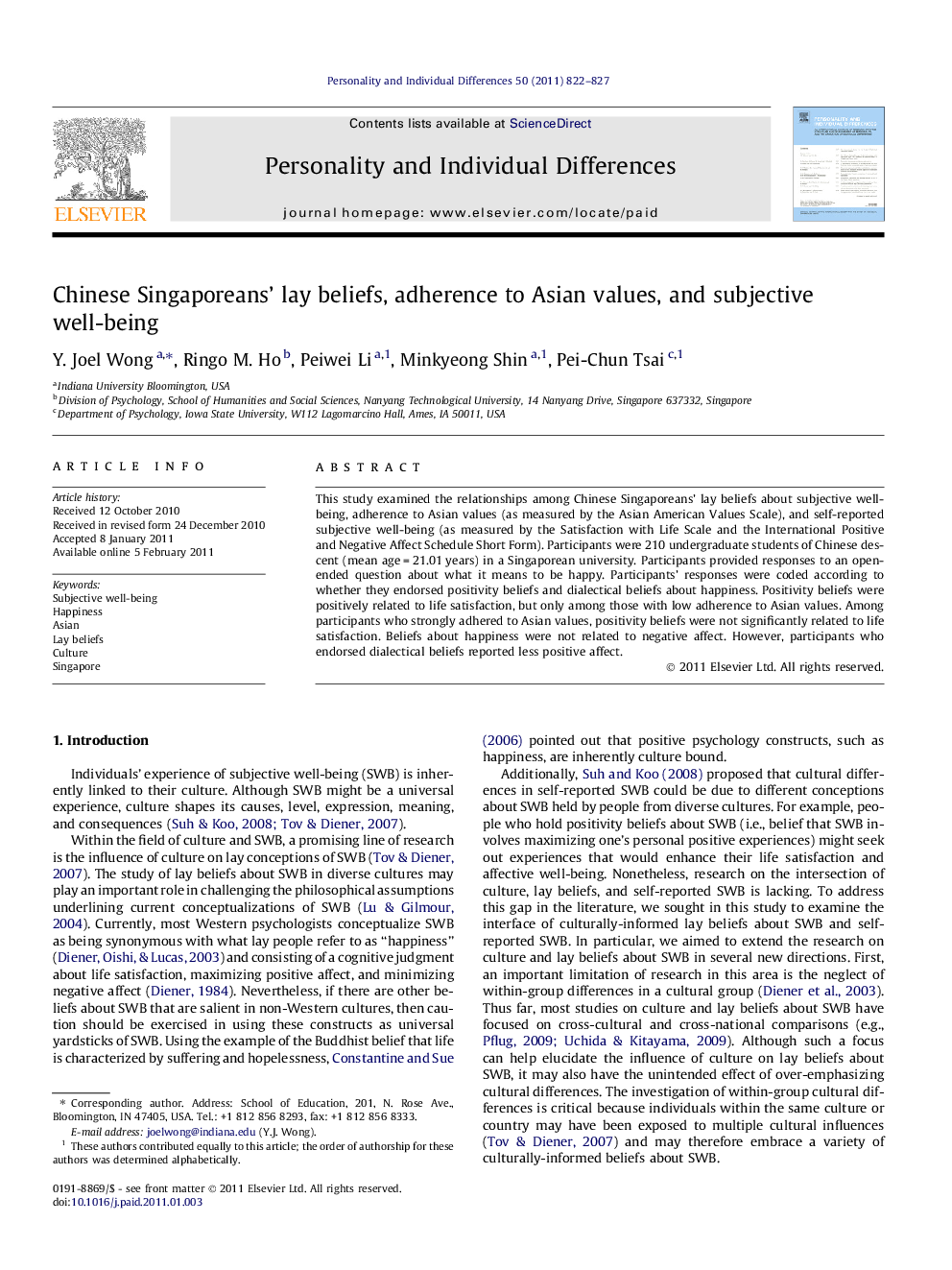| Article ID | Journal | Published Year | Pages | File Type |
|---|---|---|---|---|
| 891619 | Personality and Individual Differences | 2011 | 6 Pages |
This study examined the relationships among Chinese Singaporeans’ lay beliefs about subjective well-being, adherence to Asian values (as measured by the Asian American Values Scale), and self-reported subjective well-being (as measured by the Satisfaction with Life Scale and the International Positive and Negative Affect Schedule Short Form). Participants were 210 undergraduate students of Chinese descent (mean age = 21.01 years) in a Singaporean university. Participants provided responses to an open-ended question about what it means to be happy. Participants’ responses were coded according to whether they endorsed positivity beliefs and dialectical beliefs about happiness. Positivity beliefs were positively related to life satisfaction, but only among those with low adherence to Asian values. Among participants who strongly adhered to Asian values, positivity beliefs were not significantly related to life satisfaction. Beliefs about happiness were not related to negative affect. However, participants who endorsed dialectical beliefs reported less positive affect.
